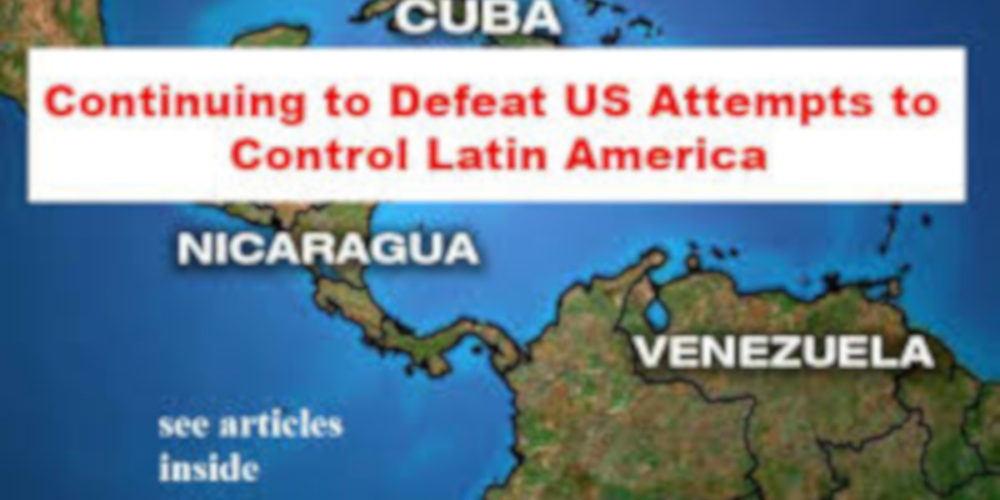In a recent interview on Youtube the Nicaraguan ambassador to the United States, Francisco Campbell, had this to say:
“Sanctions are designed to destroy, to destabilise, to demoralise, and to deny peoples in smaller countries especially the right to self-determination. You have people who want to give you all kinds of sophisticated interpretations about sanctions and the purpose of sanctions, but the bottom line is sanctions are designed to destroy, to kill, to inflict pain and suffering. Sanctions are immoral and are a form of aggression that are contrary to international law, contrary to the Charter of the United Nations, and contrary to the principle of peaceful co-existence that should exist between countries.”
In relation to sanctioning countries during the covid-19 pandemic, he said that the “sectors that continue to try to undermine and deny countries the right of sovereignty and the right of self-determination should really set aside these destructive policies and allow each country to deal with this pandemic in such a way that it helps to build rather than destroy.”
Draft resolution of the UN Security Council on Venezuela
The Russian Federation presented a draft resolution to the UN Security Council regarding the situation in Venezuela:
“The Members of the Security Council discussed the latest developments in and around the Bolivarian Republic of Venezuela.
“The Members of the Security Council rejected the use or threat of use of force, as stipulated in the UN Charter, reaffirmed relevant resolutions on the condemnation of terrorism in all of its forms and manifestations and on the use of mercenaries.
“The Members of the Security Council called for the current situation in the Bolivarian Republic of Venezuela, without interference, through peaceful and political means, in line with Chapter VI of the UN Charter, within the framework of its National Constitution and in full respect of the sovereignty and territorial integrity of Venezuela.”
The United States vetoed this resolution. That’s how dangerous these times are.
Cuban medical solidarity
Addressing the 73rd World Health Assembly, the Cuban minister of health, Dr José Angel Portal Miranda, declared that “without ever neglecting the responsibility to protect our people, we have not abandoned the Cuban Revolution’s vocation for solidarity. More than 2,300 collaborators, organised in 26 medical brigades from the Henry Reeve Contingent, contribute today in the battle against this disease in 24 countries—in addition to the more than 28,000 Cuban health professionals in 59 countries.
“Neither the genocidal blockade imposed on Cuba by the United States government, which has been cruelly intensified, nor attempts by that country’s administration to discredit and hinder Cuba’s international medical co-operation, have been able to prevent this gesture of solidarity. No single country can face this pandemic alone: a global response is required, based on unity, solidarity and renewed multilateral co-operation.
“Cuba reiterates, to the WHO and its member-states, our willingness to co-operate and share our modest experiences.”






